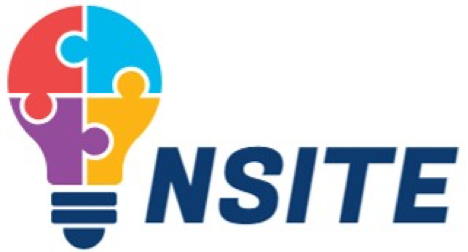NSITE - Networking STEM Initiatives to Enhance Adoption of Evidence-Based Practices (RCN-UBE Introduction)
Author(s): Michelle D Withers1, Debra Pires2, Xinnian Chen3, Elizabeth Luoma4, Eleanor Vandegrift5
1. Binghamton University SUNY 2. UCLA 3. University of Connecticut 4. Sacred Heart University 5. University of Oregon
298 total view(s), 82 download(s)
Description
Multiple initiatives have arisen to address the disconnect between theory and practice in post-secondary STEM education. While these initiatives share a common mission of making STEM education more effective and inclusive, they have been working primarily in parallel toward that shared goal and lack unity. The NSITE network is a venue through which to build connections between prominent STEM education transformation organizations.
Our mission is to foster joint efforts to increase our understanding of the complex systems problem-space in which we operate, improve the efficacy of each organization’s programs, and ultimately speed diffusion of evidence-based instructional practices.
NSITE began in 2019 with nine national STEM education transformation groups: BioQUEST, CC BioINSITES, CIRTL, NWBC, POD, POGIL, PULSE, NIST, and SENCER. All nine organizations have persisted through the first two years of network development. During that time, the network partners have taken part in two in-person meetings and many virtual meetings to build functional relationships, share successful strategies, and identify areas of common challenge toward which they can work collaboratively.
These organizations offer a breadth of programming available to both individuals and institutions looking for training, guidance, resources, and support while attempting transformation. Most of the organizations’ programming is open to educators from any post-secondary institution type. While there is variation in their mechanisms for fomenting change, the most common areas of emphasis are pedagogy, course content/curriculum and faculty development offered in the form of workshops.
Currently, two sub-groups within the network are jointly working on strategies to a) increase participation in professional development by historically excluded groups and b) better support efforts by alumni to transform their classrooms following participation in professional development programs.
Ways to learn more:
- Presentation about NSITE Adoption of Evidence-Based Practices from the 2021 Transforming Institutions Conference
Ways to get involved:
- We are in our last year of the RCN-UBE, so our final meeting has already been planned, but we are planning to join the Accelerating System Change Network as part of our post-grant sustainability plan. Anyone interested in joining our NSITE working group will be able to join through that venue.
If you are interested in learning more and participating please join this group or email Michelle Withers
Cite this work
Researchers should cite this work as follows:
- Withers, M. D., Pires, D., Chen, X., Luoma, E., Vandegrift, E. (2023). NSITE - Networking STEM Initiatives to Enhance Adoption of Evidence-Based Practices (RCN-UBE Introduction). RCN-UBE Community, QUBES Educational Resources. doi:10.25334/RTVV-CF26


 RCN-UBE #1827108
RCN-UBE #1827108